Today we’re featuring an urban garden in New York City.
My husband, Ian, and I (Kathy) live in a small house on a 100-foot by 25-foot lot in Queens, New York. Although we’d composted for years, we never gardened until 2020 when I left my corporate job. Ian’s mother and grandmother grew up in our house, and we still have the crabapple tree (Malus hybrid, Zones 4–8), bigleaf hydrangea (Hydrangea macrophylla, Zones 5–9), and rose that Great-grandfather Endsor planted.
Over the years, Adam’s needle (Yucca filamentosa, Zones 5–10), daylilies (Hemerocallis sp. Zones 3–9), deadnettle (Lamium purpureum, Zones 3–9), dandelions (Taraxaxum officinale, Zones 3–9), English ivy (Hedera helix, Zones 5–9), cleavers (Galium aparine, annual), pokeweed (Phytolacca americana, Zones 4–8), hay-scented fern (Dennstaedtia punctilobula, Zones 3–8), oak trees (Quercus species), and even the errant tomato and squash plant (from seeds in the compost) made themselves at home in our neglected yard.
Some years the yard was a wild mess that our friends now admit used to scare them! Infrequently, Ian would mow and it would look like this.
With more time on our hands, Ian and I decided to finally do something with the redwood planks we’d purchased years ago for raised beds and never used. This is the yard in early 2020, when Ian started to think about where to put the beds. We hoped that all the compost we’d made over the years would help mitigate the excess lead in our soil. (Soil testing is highly recommended for NYC gardens, especially one that tests for heavy metals.)
Concurrently, Ian dismantled an obsolete chimney and made a brick path between the beds. He’s the hardscape person, and I’m the gardener.
Later that year he also made a patio farther back, near the crabapple tree. Being inexperienced gardeners, we unwisely paid no attention to sun and shade conditions. We just put the patio and beds where we thought they would look good. If we were doing this today, we’d reverse the patio and the beds; the back north part of our yard gets the most sun.
I was late in seed sowing, but a friend gave us some tomato starts, and I bought some pepper starts. Lettuce and radish are fast growers, and the squash seeds quickly took off once the weather was warmer (squash is my favorite). We cut down the “volunteer” pin oak tree in order to give the vegetables more access to the sun.
And then I started taking classes at the New York Botanical Garden, which led me to Doug Tallamy’s books (Bringing Nature Home, etc.) and the importance of indigenous plants, especially oak trees. It was too late for our backyard oak, but we do have another pin oak in the small front yard, which we will happily leave in place. I decided that the perimeter (along the fences) and the back west (under the crabapple) and the back east (where you can see the stone path) would be home to future native plantings.
Tasting homegrown food is miraculous, and it made us gardeners for life. Ian became determined to add more growing space, so in 2021, he reconfigured the beds (and added more beds in the way back), which we filled with a mixture of vermiculite, peat, and five kinds of compost so we wouldn’t have to worry about lead. (It wasn’t until later that I learned about the unsustainability of peat.) This photo shows the layout we had in 2021 (the jugs are winter-sown native plant seeds).
And here is the 2021 garden in August. We grew lots of kale and admired the silvery leaves well into autumn. I read about companion planting and mixed in marigolds (Tagetes sp., annual), zinnia (Zinnia elegans, annual), anise hyssop (Agastache foeniculum, Zones 4–8), and alyssum (Lobularia maritima, annual) with the vegetables.
Annuals like coleus with colorful foliage helped fill in the spaces that would later be filled with native plants. Here’s rattlesnake master (Eryngium yuccifolium, Zones 3–8) on the far left, slender mountain mint (Pycnanthemum tenuifolium, Zones 4–9), stone mountain mint (Pycnanthemum curvipes, Zones 4–9), ‘Little Joe’ Joe Pye weed (Eupatorium dubium ‘Little Joe’, Zones 4–8), and a dwarf mountain laurel (Kalmia latifolia, Zones 4–9) called ‘Firecracker’, with coleus (Coleus scutellarioides, Zones 10–11 or as an annual) filling in. The bees love coleus flowers, but not as much as mountain mint and Joe Pye weed.
Then I read about the importance of rotating crops. Here’s the garden in 2022. You can see that Ian added a tomato trellis (which can be shifted to other areas in later years). Later, he made an arbor using only found materials. And next year, he’s going to add support for what we now know is a climbing rose.
And here are some of the harvests we’ve had. We eat a lot of vegetables every day, and most of them came from our own yard last summer.
And just as satisfying were the native perennials and the year-round beauty and insects they brought to the yard. It’s surprising how little space you need to start a native-plant garden. Here’s a tiny shade area in the way back, under the crabapple tree.
And here’s a shade garden close to the house, in early spring, with violets (Viola sororia, Zones 3–7), woodland phlox (Phlox divaricata, Zones 3–8), Virginia bluebells (Mertensia virginica, Zones 3–8), and foamflower (Tiarella cordifolia, Zones 4–9).
Black cohosh (Actea racemosa, Zones 3–8) is planted nearby, and the seeds look almost golden in the summer after the flowers fade.
The aromatic aster (Symphyotrichum oblongifolium, Zones 3–8) has been one of our great joys, so much so that I added some to the front yard and more in the way back to grow near the ‘Fireworks’ goldenrod (Solidago rugosa ‘Fireworks’, Zones 4–8).
All told, we’ve added over 70 native plants to the backyard and small front yard. After taking classes at the New York Botanical Garden (shout out to Kim Eirman/Ecobeneficial.com), reading Doug Tallamy, Mary Reynolds (The Garden Awakening), Robin Wall Kimmerer (Braiding Sweetgrass), Sara Stein (Noah’s Garden), joining native-plant Facebook groups, attending many native-plant talks, volunteering on the High Line, and visiting the Mt. Cuba Center, I’m more determined than ever to increase the percentage of native plants on our property.
Want to see more from Kathy? Check out her Instagram: woodside_growing
Have a garden you’d like to share?
Have photos to share? We’d love to see your garden, a particular collection of plants you love, or a wonderful garden you had the chance to visit!
To submit, send 5-10 photos to gpod@taunton.com along with some information about the plants in the pictures and where you took the photos. We’d love to hear where you are located, how long you’ve been gardening, successes you are proud of, failures you learned from, hopes for the future, favorite plants, or funny stories from your garden.
Have a mobile phone? Tag your photos on Facebook, Instagram or Twitter with #FineGardening!
Do you receive the GPOD by email yet? Sign up here.
Fine Gardening Recommended Products
The New Organic Grower, 3rd Edition: A Master's Manual of Tools and Techniques for the Home and Market Gardener, 30th Anniversary Edition
Fine Gardening receives a commission for items purchased through links on this site, including Amazon Associates and other affiliate advertising programs.
Since its original publication in 1989, The New Organic Grower has been one of the most important farming books available, with pioneer Eliot Coleman leading the charge in the organic movement in the United States. Now fully illustrated and updated, this 30th Anniversary Edition is a must-have for any agricultural library.
A.M. Leonard Deluxe Soil Knife & Leather Sheath Combo
Fine Gardening receives a commission for items purchased through links on this site, including Amazon Associates and other affiliate advertising programs.
MULTITASKING DUAL EDGES: a deep serrated edge and a tapered slicing edge ideal for tough or delicate cuts. DURABLE 6-inch stainless steel blade withstands 300 lbs of pressure. TWINE CUTTING NOTCH, DEPTH GAUGE MARKINGS & spear point - no need to switch tools when using this garden knife. LEATHER SHEATH: heavy duty, protective, clip on sheath to keep your knife convenient and secure. LIFETIME WARRANTY.
Ho-Mi Digger - Korean Triangle Blade
Fine Gardening receives a commission for items purchased through links on this site, including Amazon Associates and other affiliate advertising programs.
Versatile Tool: The Easy Digger Korean Triangle Blade Ho Mi Ho-mi is a versatile gardening tool designed for leveling and digging in home and garden settings. Efficient Design: Its unique triangular blade shape allows for easy soil penetration and efficient leveling of garden beds or landscaping areas. Durable Construction: Crafted with sturdy materials, this tool ensures long-lasting performance and reliability.
Ergonomic Handle: The comfortable handle provides a secure grip, reducing hand fatigue during extended use. Compact Size: Its compact design makes it easy to maneuver in tight spaces and store when not in use.
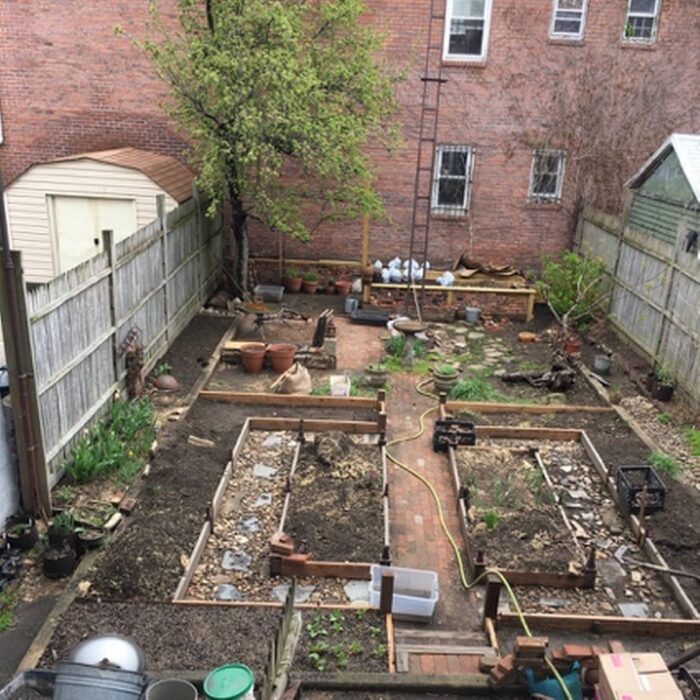














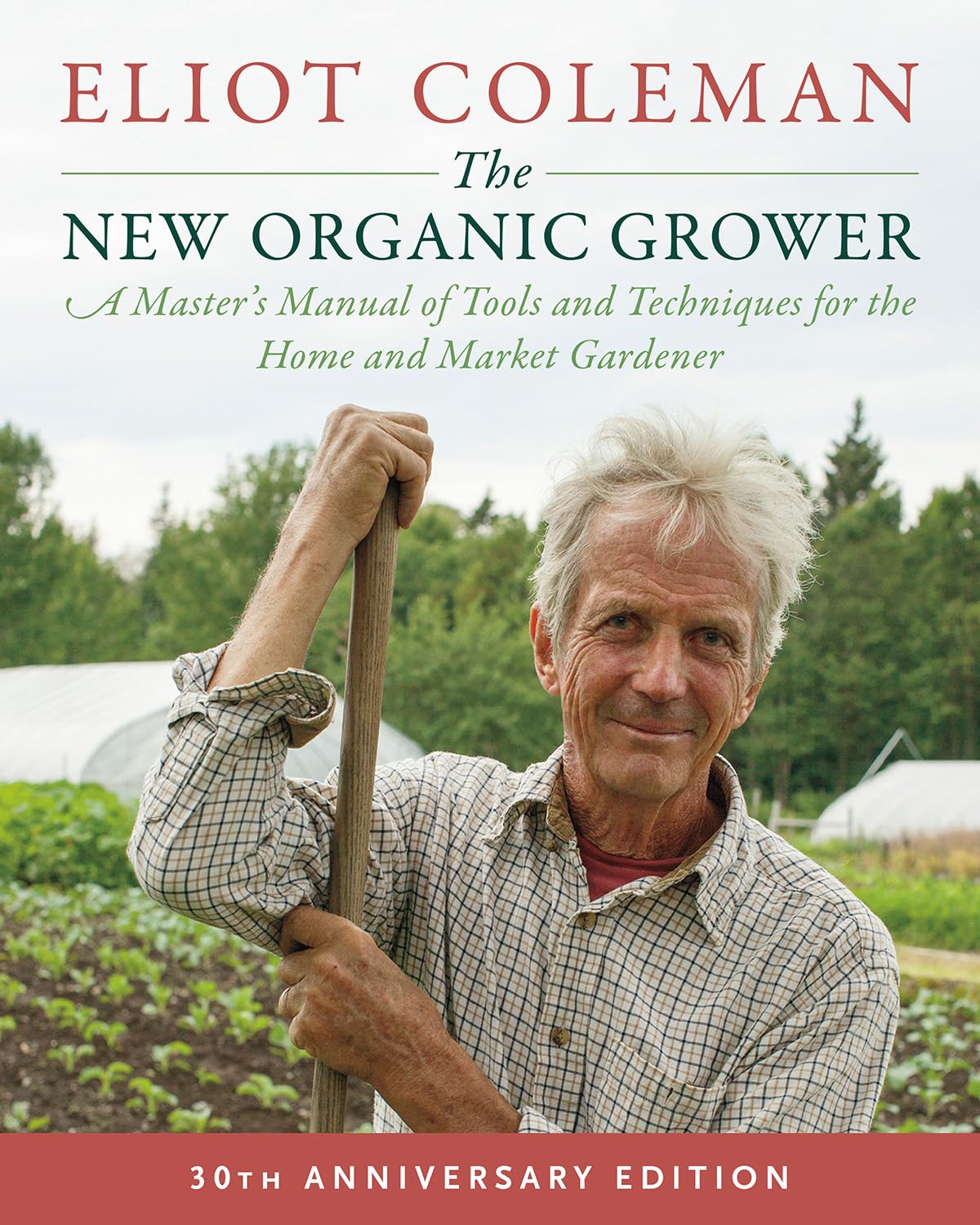
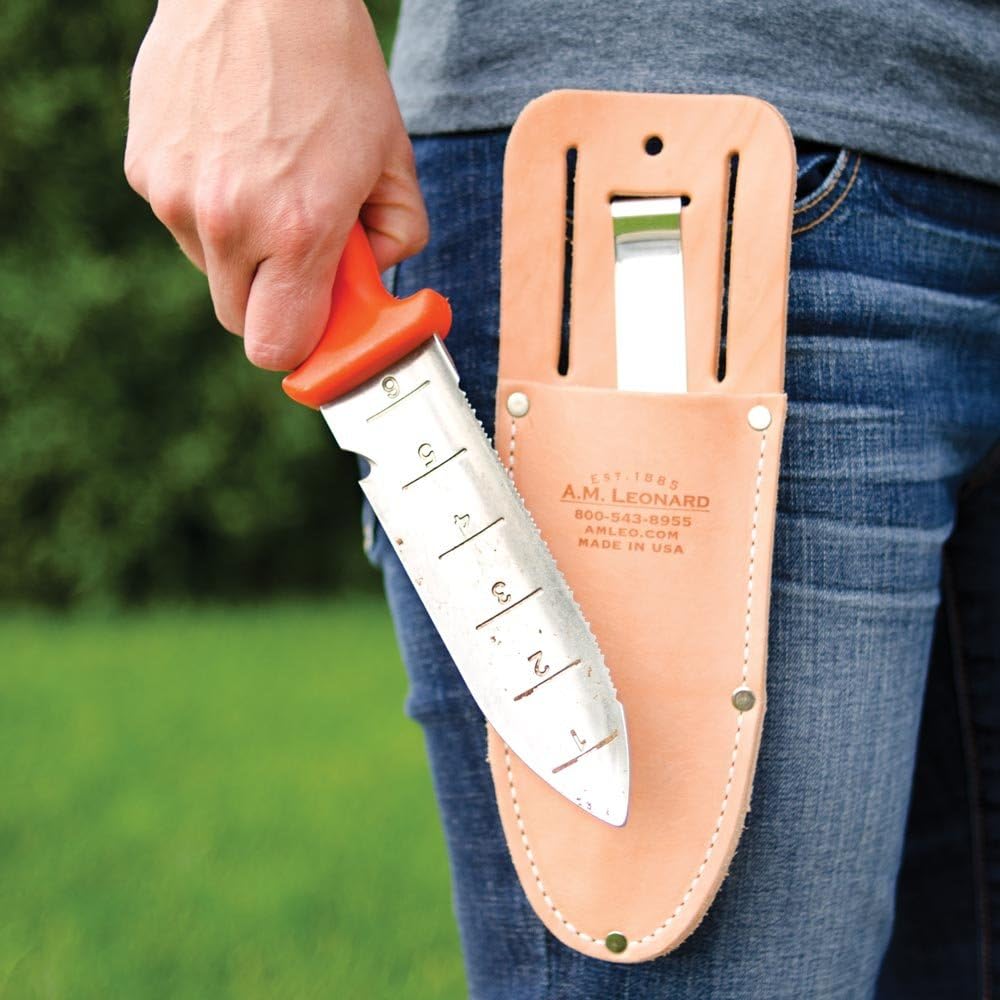
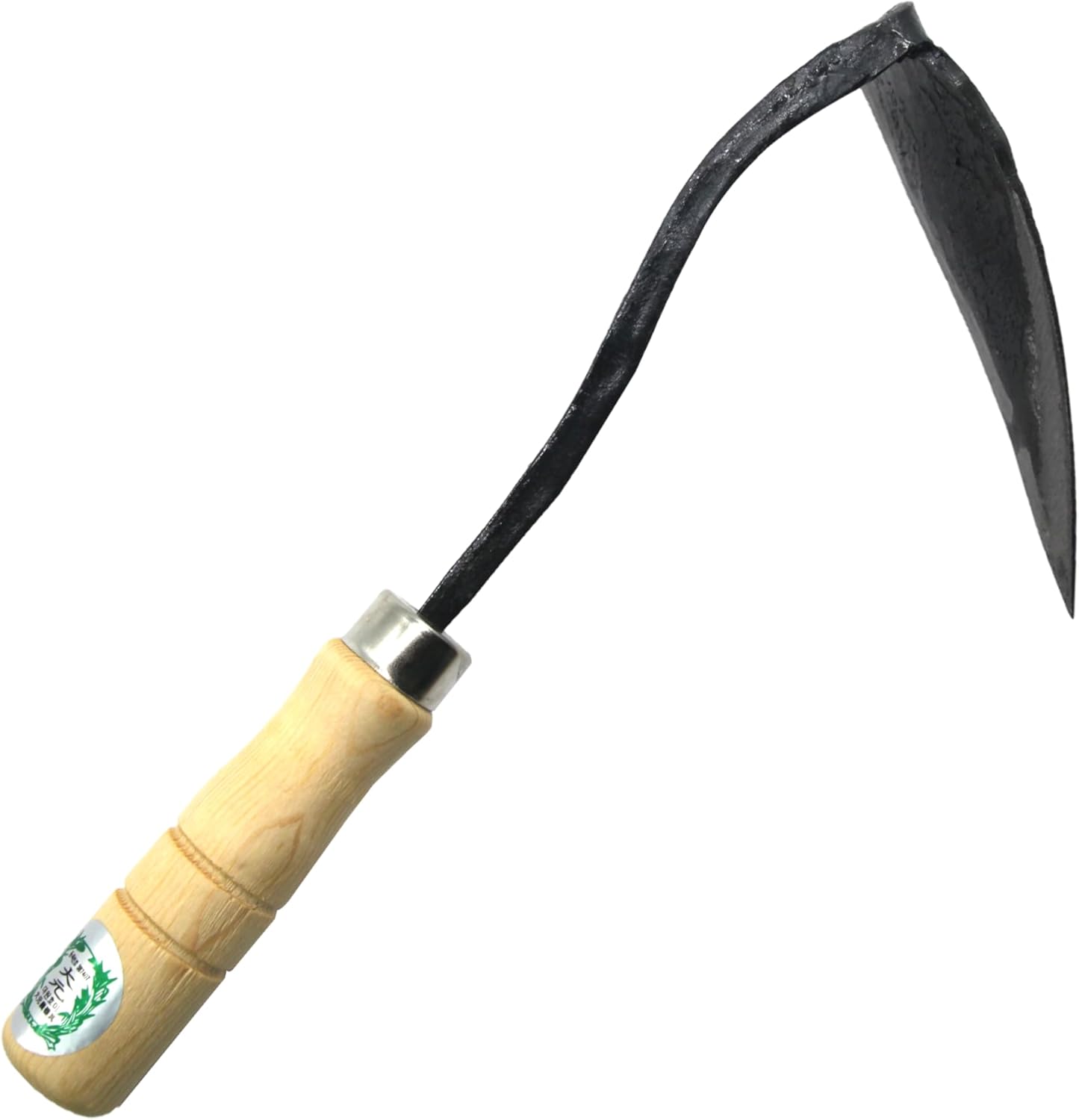


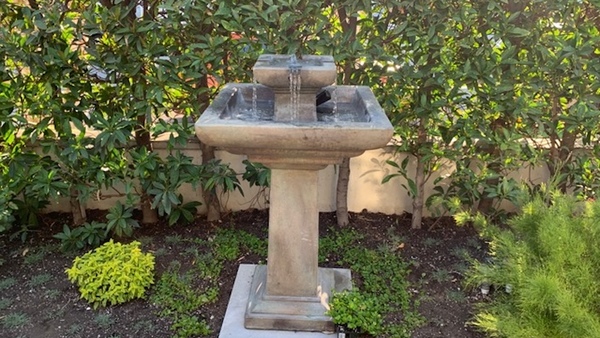


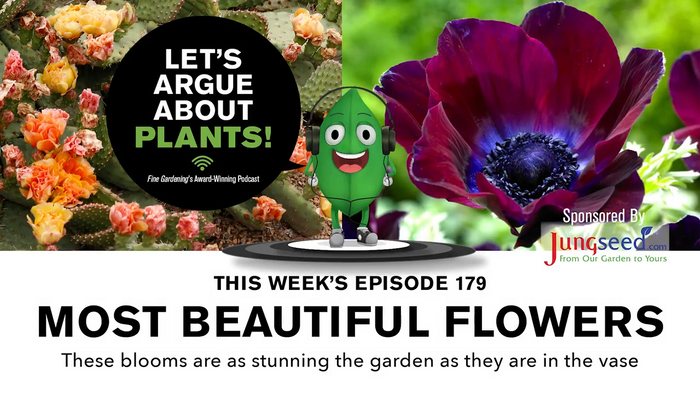

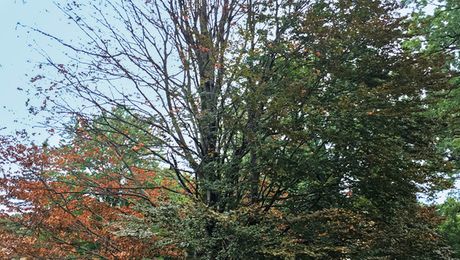










Comments
Ian and Kathy, Truly amazing and inspiring. A garden of Eden right in Queens New York! El Paradiso to be sure. You both did a marvellous job, congratulations. Well done!
My goodness you both have been busy, busy, busy. It looks wonderful and I commend you for all the rearranging that you did to provide more sun for veggies. Putting in hardscaping and realizing afterwards that it would work better with another arrangement is discouraging and would put many people off changing things. But you both persevered and came out ahead by doing so. Ian looks to be quite handy to produce needed non-veggie additions which is such a big help for the gardener. I love what you have done. How big is the space there that you have been working with?
So inspiring, makes me want to better use my space. And grow more edibles. Thank you for sharing your journey.
What an amazing transformation and a source of healthy produce. Great Job!
What a wonderful story and accomplishment Kathy and Ian! We could all benefit if we followed your example. So beautiful.
Great story and love the garden, and seeing how it progressed and turned into such a cool place to grow vegetables sit at a table and grow a few woodsy flowers and plant.
Great job and it's nice to know your friends no longer need to be afraid of your backyard! : ) Everything looks so good and the photos of your harvest are beautiful.
Fascinating! What a steep learning curve you were on, and in a year you’ve surpassed many long-time gardeners in harvest. That’s not to mention the loveliness of the space you and Ian created. Very impressive; I have to think Endsor would be so pleased.
Almost moves me to tears- not only because you have done such an amazing job, but also because I am waiting for a referral to an orthopedic surgeon for my shoulder, which I fell on during my latest yard survey in anticipation of a great gardening season!!!
Wonderful garden Ian and Kathy, I live in Chicago and have turned my backyard into a Permaculture garden over the past 20 years. I like how you incorporated your family's past history of the garden into your new ever expanding garden.
What a beautiful transformation. Congratulations.
I'm just seeing this post and you probably aren't checking comments any more but I wanted add my congratulations about this amazing transformation of your back yard and your lives as gardeners. Yours is a wonderful and inspiring story for any potential gardeners.
Wow! Your garden is so amazing like geometry dash lite. Where can you get the seeds of Black cohosh?
Log in or create an account to post a comment.
Sign up Log in